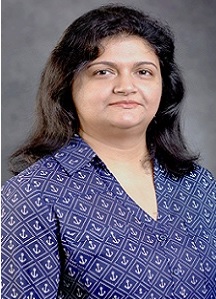Sanjukta Chakraborty, PhD

Assistant Professor
Department of Medical Physiology
Contact
Center for Translational Cancer Research
8447 Riverside Pkwy
2416 Medical Research and Education Building 2
Bryan,
77807
schakraborty@tamu.edu
Phone: 979.436.0697
Chakraborty Lab
Google Scholar
Representative Publications
EDUCATION AND TRAINING
- University of Calcutta, India, BS, 2000
- Banaras Hindu University, MS, 2002
- Indian Institute of Science, PhD, 2007
- Texas A&M Health Science Center, Postdoctoral Fellowship, 2013
RESEARCH INTERESTS
- My research program is primarily focused on the central theme of inflammation as a prime modulator of lymphatic associated pathologies. The lymphatics have emerged as central players in the regulation of inflammation and immunity yet the precise mechanisms remain undefined. My research interests primarily lie in elucidating a number of these inflammatory signaling mechanisms maintaining the balance between normal and disease states using cutting edge molecular biology techniques, cellular, physiological and biochemical tools and ex vivo and in vivo approaches. Current projects include:
- Role of an inflammatory tumor-lymphatic microenvironment in cancer progression.
- One primary area of interest in my laboratory is to determine how an inflammatory tumor-lymphatic microenvironment contributes to cancer metastasis and progression. The lymphatics were believed to provide a passive transport to migrating tumor cells but recent evidence clearly implicates their active role in fostering tumor metastasis including the transit of tumor cells via the lymphatic vessels and establishment of a metastatic niche in draining lymph nodes. However, the mechanisms remain unclear. Our research focuses on the interplay between cytokine and chemokine gradients that regulate tumor cell entry, migration and subsequent metastasis through the lymphatics and the various factors that regulate these interactions.
- Role of microbiota dysbiosis in lymphatic inflammation and effect on associated pathologies.
- Another focus of the lab is to investigate the role of inflammation and diet related changes in the gut microbiome (dysbiosis) and how specific microbiota metabolites impact lymphatic function, inflammatory response and affects diseases such as cancer, obesity, and metabolic disorders. This is a cross-collaborative research program using molecular biology, immunology and metabolomics approaches with researchers in chemical engineering and microbial pathogenesis & immunology at Texas A&M.
